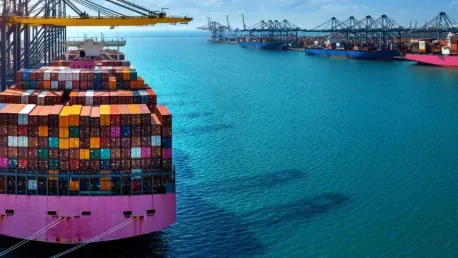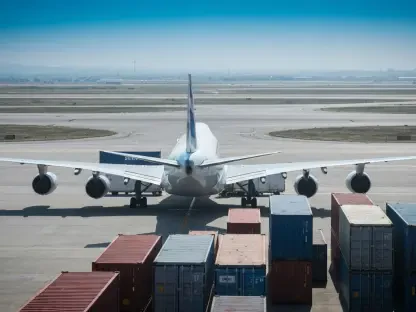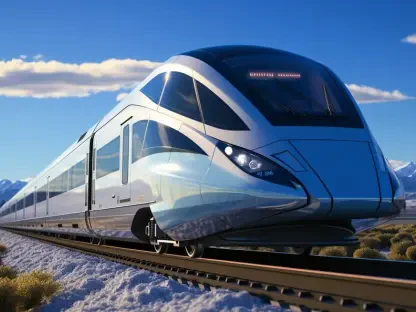In a significant strategic move, Maersk has announced a $250 million investment in a comprehensive logistics park at Jeddah Islamic Port in Saudi Arabia, marking an essential step for the Middle Eastern logistics sector. This expansive initiative aligns seamlessly with Saudi Arabia’s Vision 2030, designed to transform the nation’s economy by diversifying it beyond oil and establishing Riyadh as a regional transportation and economic hub.
Enhancing Logistics and Industrial Integration
A Major Development in Saudi Logistics
Maersk’s establishment of a 225,000-square-meter facility at Jeddah Islamic Port signifies a major development in Saudi Arabia’s logistics infrastructure. This new hub is set to offer a range of comprehensive logistics services tailored to sectors such as e-commerce, automotive, and pharmaceuticals. By providing end-to-end solutions, including first and last-mile deliveries and custom services, the facility aims to streamline logistics operations and enhance efficiency.
This investment is not isolated but part of a larger trend driven by Saudi Arabia’s National Industrial Logistics Development Program. The program aims to enhance industrial and logistics links within the kingdom, boosting economic activity and making the region more attractive to global players. Legal reforms have been implemented to create favorable conditions for foreign investments, and these reforms are drawing the attention of global companies like Goldman Sachs and BlackRock. These reforms are designed to facilitate seamless international business operations and make the Saudi market more accessible to multinational corporations.
Saudi Arabia’s Vision 2030 and Economic Diversification
Saudi Arabia’s Vision 2030 is a comprehensive plan to diversify the national economy and reduce its reliance on oil. By investing in non-oil sectors like logistics, the kingdom is laying the groundwork for sustained economic growth and a more dynamic economy. Maersk’s significant investment in the logistics park at Jeddah Islamic Port aligns with this vision. The new facility will not only create jobs and stimulate economic activity but also position Saudi Arabia as a key player in the global logistics sector.
The National Industrial Logistics Development Program plays a crucial role in this transformation. It aims to improve infrastructure, streamline processes, and attract foreign investments. This program is a testament to Saudi Arabia’s commitment to modernizing its economy and creating a business-friendly environment. The presence of global companies in the kingdom underscores the success of these efforts and highlights Saudi Arabia’s potential as a regional logistics hub.
Adapting to Regional Security Challenges
Threats from Yemen’s Houthi Militants
Despite the ambitious plans and significant investments, the backdrop to Maersk’s investment includes ongoing security challenges in the region. Since October 2023, Yemen’s Houthi militants have been targeting shipping liners, including Maersk’s containers, with attacks. The Houthis have also issued warnings against transporting Israeli goods, adding another layer of complexity to the region’s logistics operations. These threats have forced shipping routes to be adjusted, often requiring vessels to take longer paths such as the Cape of Good Hope to avoid the Bab el Mandeb strait.
Maersk’s substantial investment in the Jeddah logistics park is a strategic response to these security challenges. By establishing a significant presence in Saudi Arabia, Maersk aims to mitigate the risks associated with regional conflicts and ensure the continuity of its operations. This move highlights the company’s resilience and commitment to maintaining a strong presence in the Middle East, even amid ongoing threats.
Resilience and Strategic Positioning
In a pivotal strategic move, Maersk has committed $250 million to develop a comprehensive logistics park at Jeddah Islamic Port in Saudi Arabia. This landmark investment signifies a crucial advancement for the Middle Eastern logistics sector, playing a key role in Saudi Arabia’s broader economic ambitions. The new logistics park is designed to bolster the region’s transportation capabilities, which is in perfect harmony with Saudi Arabia’s Vision 2030. This ambitious plan aims to diversify the nation’s economy, reducing its heavy dependence on oil revenues. Vision 2030 intends to establish Riyadh as a regional hub for transportation, trade, and economic activities, thereby fostering greater economic resilience and global competitive edge. This move by Maersk is expected to not only enhance logistical efficiencies but also generate substantial employment opportunities, contributing to the overall economic upliftment of the region. By aligning with Vision 2030, Maersk positions itself strategically within a region poised for significant economic transformation.









